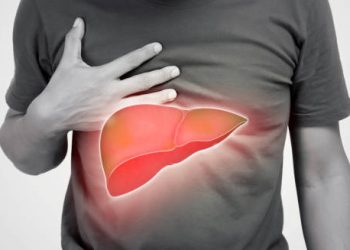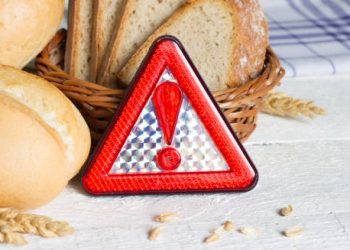Jaundice in newborns presents with a variety of signs, most of which are visible and detectable with careful observation.
The most common sign is a yellow look to the baby’s skin and the whites of the eyes. This happens because of high levels of bilirubin in the blood. While this is often easy to spot, some other signs can be harder to notice. Some may be more serious and need quick medical care.
Parents, caregivers, and doctors all need to understand these signs. Spotting jaundice in newborns early allows fast treatment. This lowers the risk of serious problems, such as brain damage from kernicterus.
Below is a full list of symptoms. Some are usual, and others are more rare or severe.
Yellow Skin and Eyes: A Key Sign of Jaundice in Newborns
The most well-known sign is yellow skin and yellowing of the whites of the eyes. This happens when bilirubin builds up in the baby’s skin and body.
The yellow colour often starts on the face, near the nose and forehead. Then it moves down to the chest, belly, arms, and legs. This is called cephalocaudal spread and often shows the bilirubin level rising.
Sunlight makes this yellowing easier to see. But in babies with darker skin, it can be hard to spot. In those cases, checking the whites of the eyes, the gums, or even the soles of the feet may help.
Poor Feeding and Sleepiness
Some babies with jaundice in newborns may not feed well. They might be sleepy or hard to wake. Others may start feeding but stop too soon or not suck well.
Poor feeding makes the baby pass fewer stools. This slows down the removal of bilirubin from the body. As a result, the jaundice gets worse.
Sleepiness is a warning sign. A baby who is hard to wake or keeps falling asleep during feeds needs to see a doctor soon.
Unusual Urine and Stool Colour
Healthy babies usually have pale yellow urine and yellow or green stools. But if the liver cannot process bilirubin properly, things can change.
Urine may look dark yellow or even orange. This may show that the baby has conjugated hyperbilirubinaemia, which is more serious.
Stools may look pale, grey, or clay-coloured. This could mean that bilirubin is not being passed into the gut. These signs might point to problems like biliary atresia or liver disease.
These symptoms help spot cholestatic jaundice. This type needs fast referral to a specialist.
Irritability and Crying
All babies cry. But some babies with jaundice in newborns may cry too much or in a high-pitched tone. This can be a sign of a more serious problem.
The baby might arch their back or feel stiff or floppy. Some may have a bulging soft spot on the head. These signs show that the baby might have acute bilirubin encephalopathy, which is a medical emergency.
Crying along with poor feeding and fever could also mean the baby has an infection like sepsis or meningitis.
Body Temperature Changes
Sometimes jaundice in newborns comes with trouble controlling body heat. This happens more often when infections or rare conditions cause the jaundice.
Look out for:
- Fever
- Cold hands and feet
- Excess sweating
- Low body temperature
These signs by themselves are not clear proof of jaundice. But when seen with yellow skin and low energy, they suggest that something serious may be going on.
Signs of Liver or Spleen Swelling
Some babies with liver problems or blood-related causes of jaundice may have a swollen belly. A doctor might feel an enlarged liver or spleen during an exam.
This can happen when the jaundice in newborns is caused by infections, blood issues, or rare disorders. These signs often need scans and blood tests to find the cause.
Early Jaundice: A Medical Alert
When yellowing starts in the first 24 hours after birth, doctors treat it as a red flag. This is different from normal jaundice, which usually begins later.
Possible causes of early jaundice include:
- Blood group mismatch
- Birth-related blood breakdown
- Infections present at birth
- Inherited enzyme issues
Doctors need to act fast in these cases. Yellowing that starts before the first day must be checked straight away.
Long-Lasting Jaundice in Newborns
If jaundice lasts more than 2 weeks in full-term babies (or 3 weeks in early babies), doctors call it prolonged.
Sometimes this happens with breast milk jaundice, which is not harmful. But in other cases, it may mean there is a more serious problem.
Possible causes of prolonged jaundice in newborns:
- Biliary atresia
- Low thyroid levels
- Urine infections
- Liver metabolism problems
These babies need tests, scans, and full check-ups to find out what’s wrong.
Brain-Related Symptoms
Very high levels of bilirubin can harm the brain. This leads to acute bilirubin encephalopathy, a serious problem that needs emergency care.
Look for signs like:
- A baby who becomes very sleepy or hard to wake
- Floppy or stiff muscles
- Seizures
- Refusal to feed
If this isn’t treated quickly, it can turn into kernicterus. This can cause hearing loss, brain damage, movement problems, and delays in growth.
Luckily, most cases of jaundice in newborns get treated early. So this outcome is rare with proper care.
Home Checks and Parental Involvement
Parents and caregivers play a big role in spotting problems early. They should:
- Check the baby’s skin in daylight
- Track feeding and diaper output
- Watch for odd sleep or crying habits
- Call the doctor if yellowing starts early or worsens
It’s also important to go to follow-up visits. Most hospitals now check bilirubin levels before discharge and book a check-up in 2 to 3 days.
Conclusion: Recognising Jaundice in Newborns Early
The signs of jaundice in newborns can range from mild to very serious. While yellow skin and eyes are the most well-known symptoms, others like poor feeding, sleepiness, and odd urine or stool colour can hint at deeper issues.
Quick action from both health workers and parents is key. Fast screening, close watching, and good care can help most babies recover fully—with no lasting problems.


